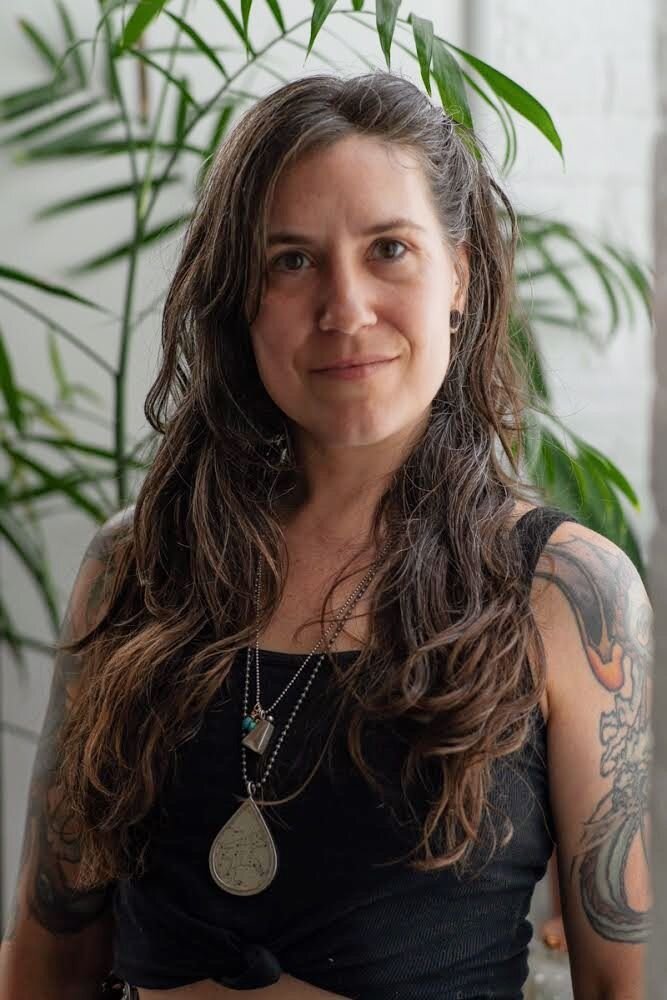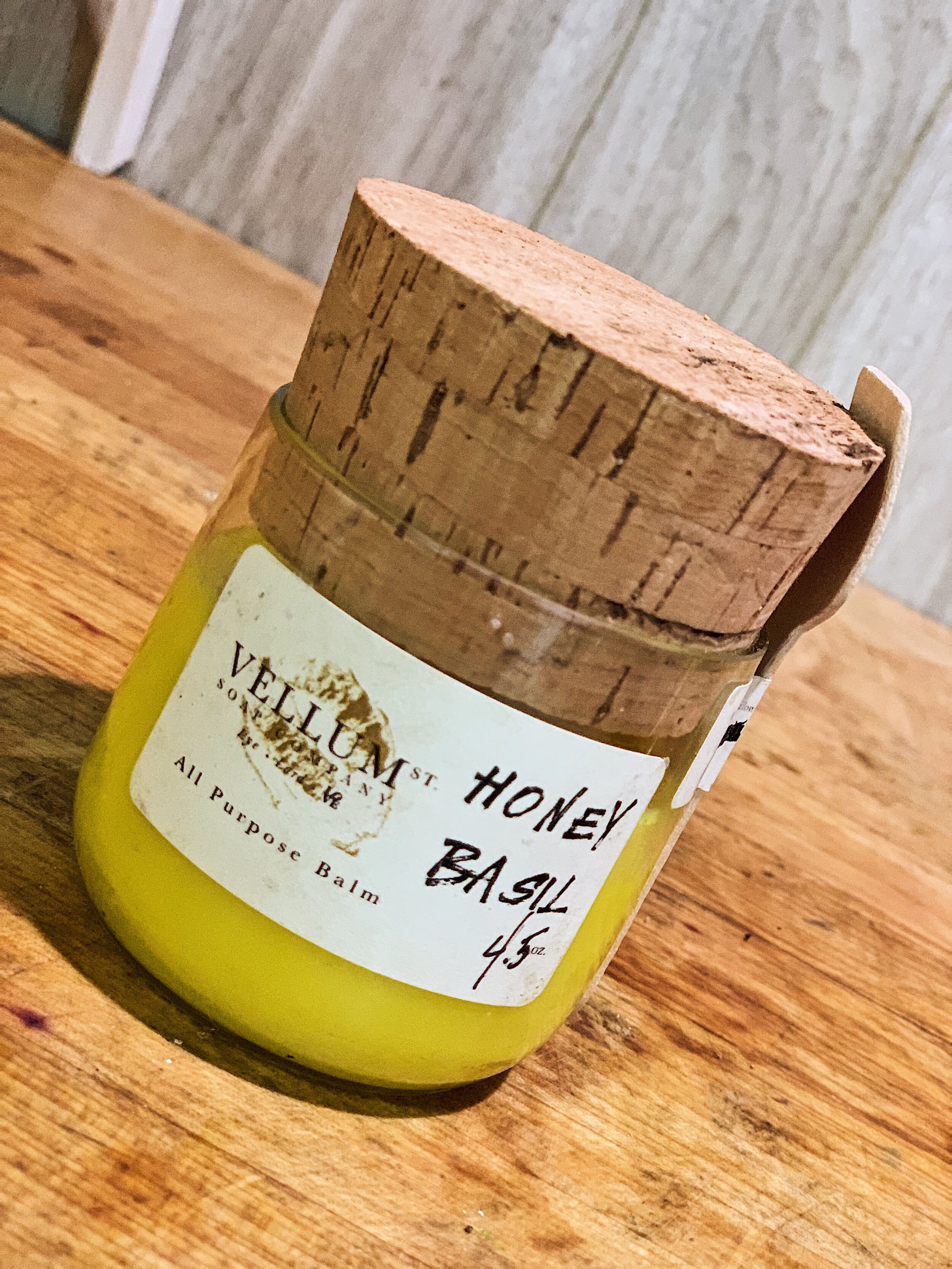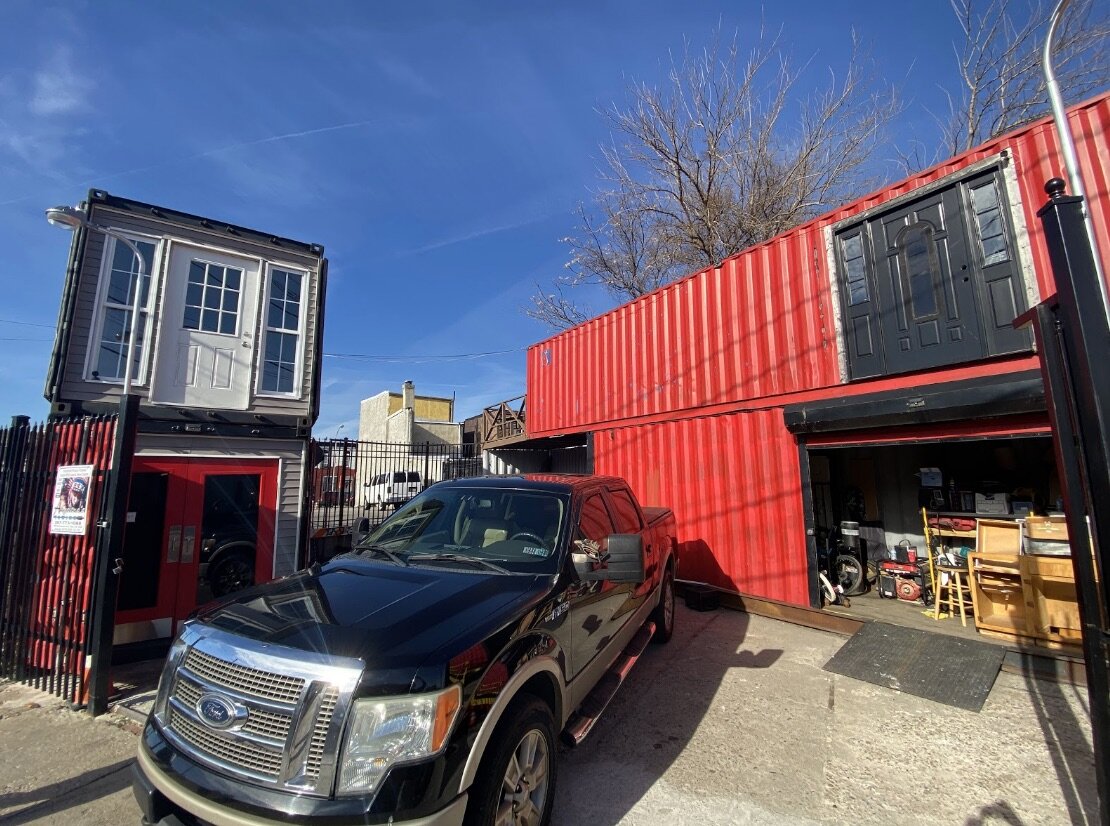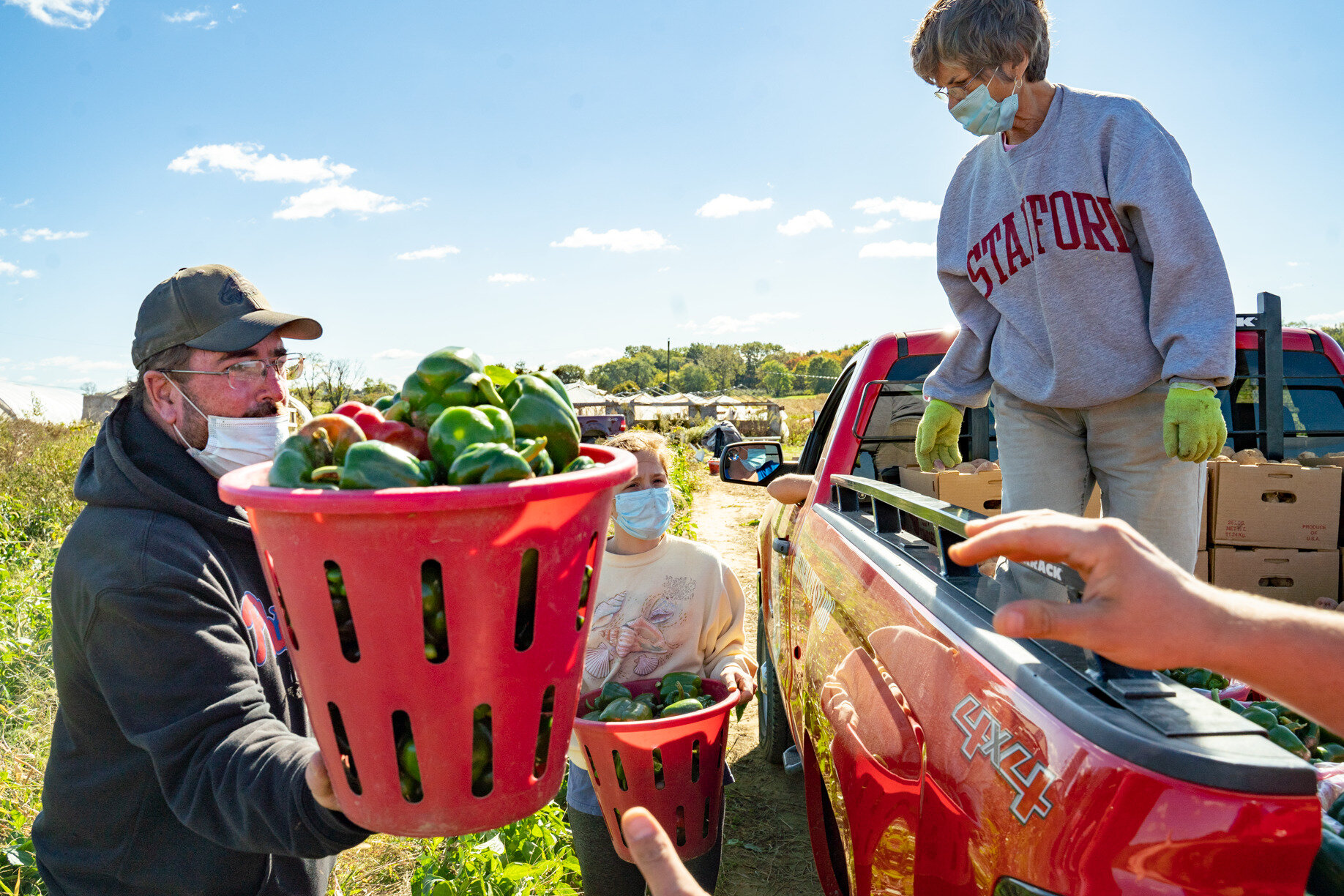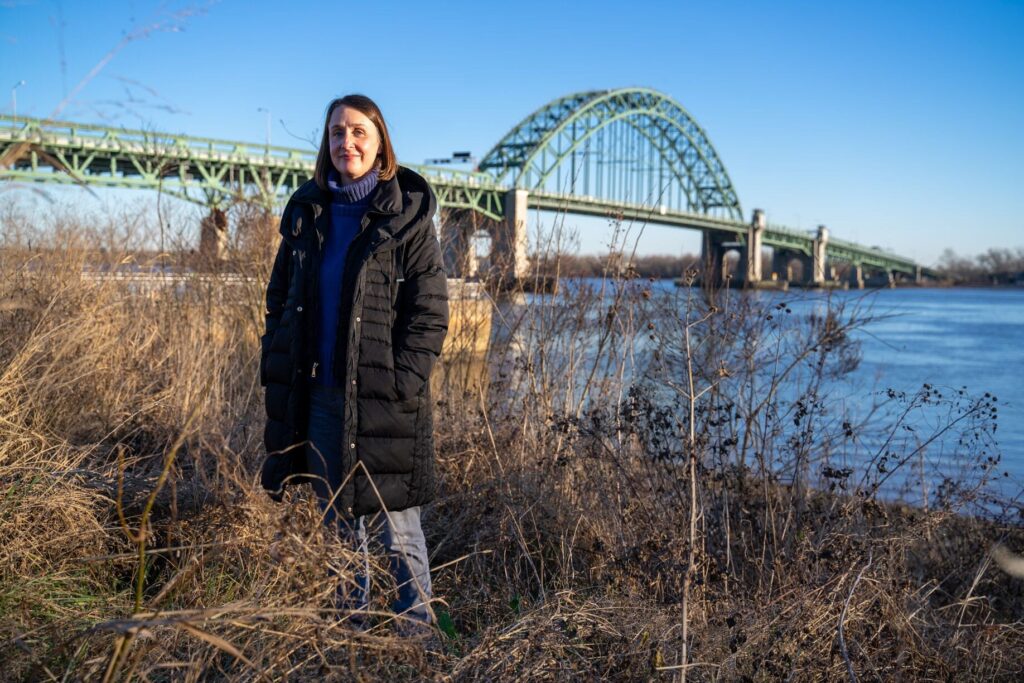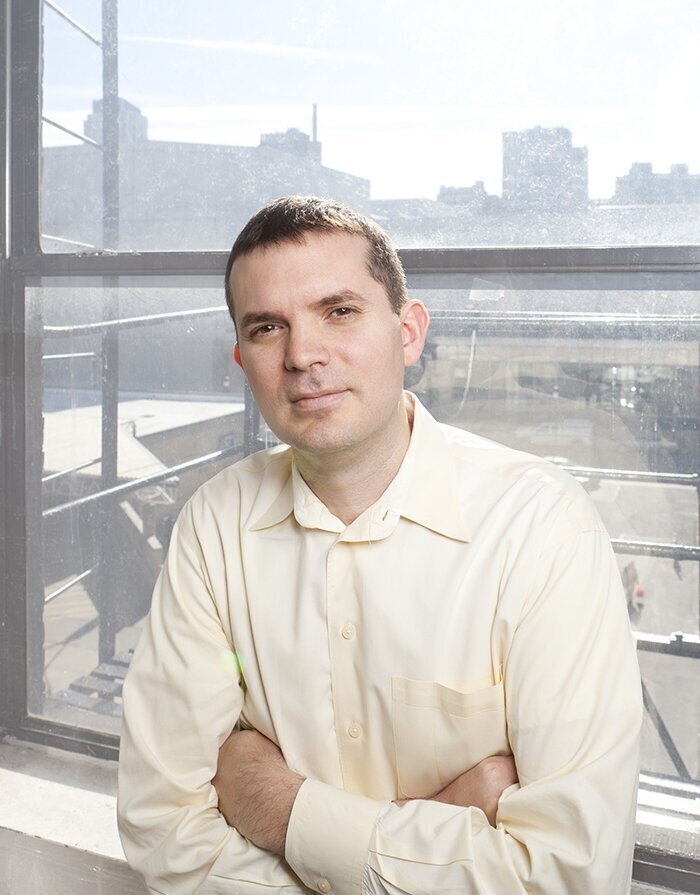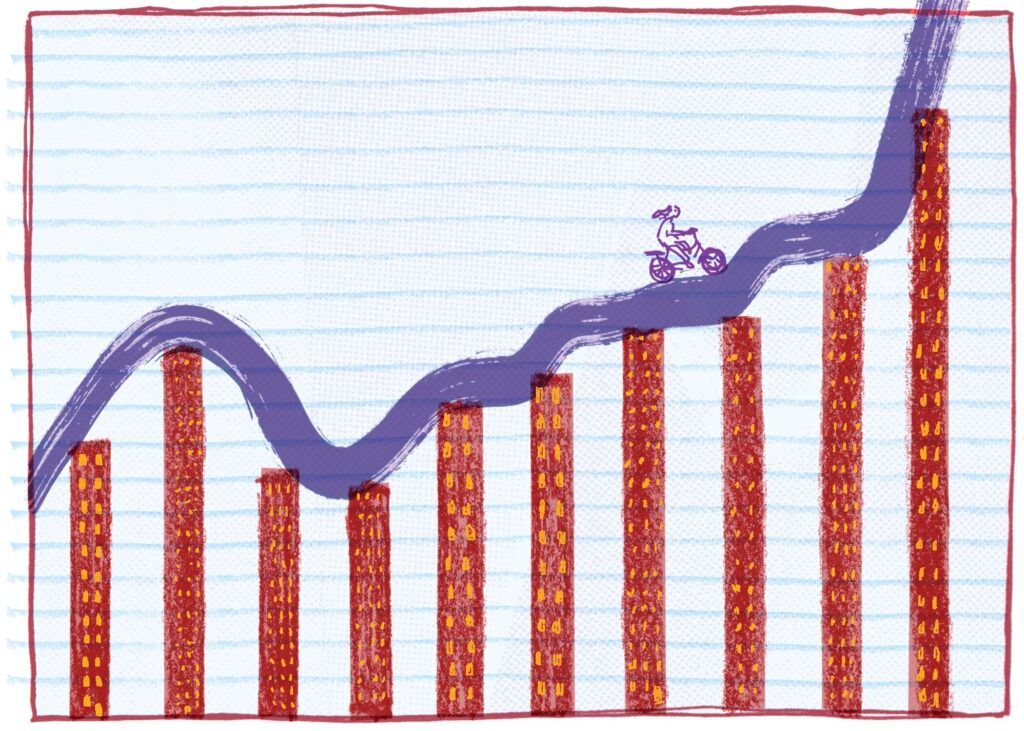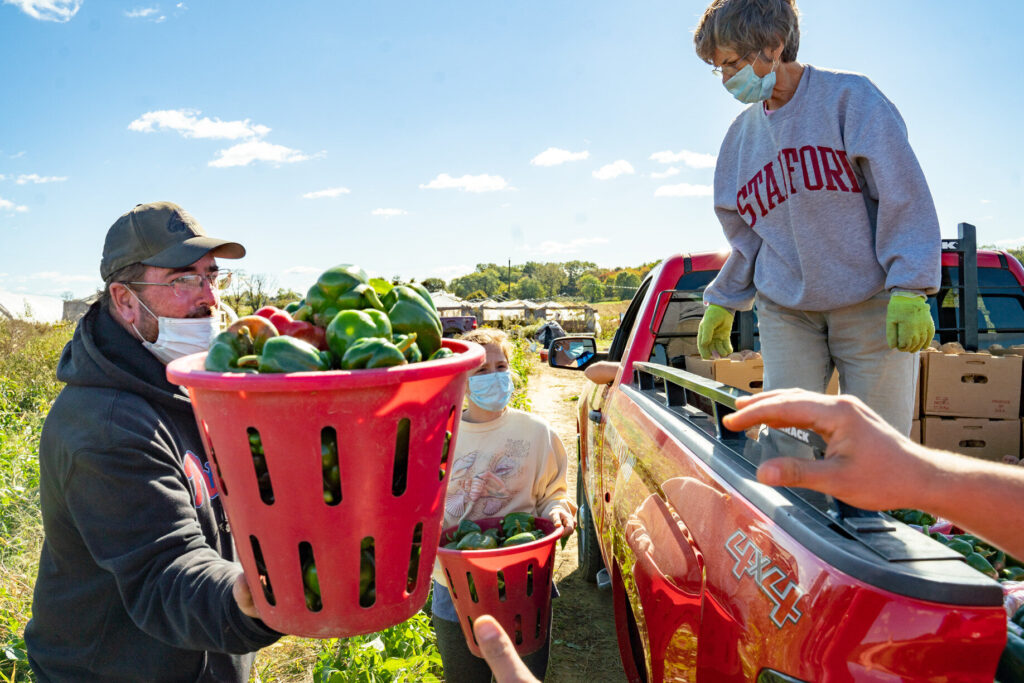Before Melissa Torre brainstorms new scents and ingredients for skin care products, she thinks about food.
Prior to founding Vellum St. Soap Company, in 2016, Torre spent about five years running her bakery, Cookie Confidential, as well as 10 years managing Tattooed Mom, on South Street.
She credits her experience as a chef with sparking her interest in food waste. Her unique soaps—which include honey basil, rosemary potato chamomile and lemon ginger oatmeal—all make use of excess ingredients from restaurants, bars and other businesses.
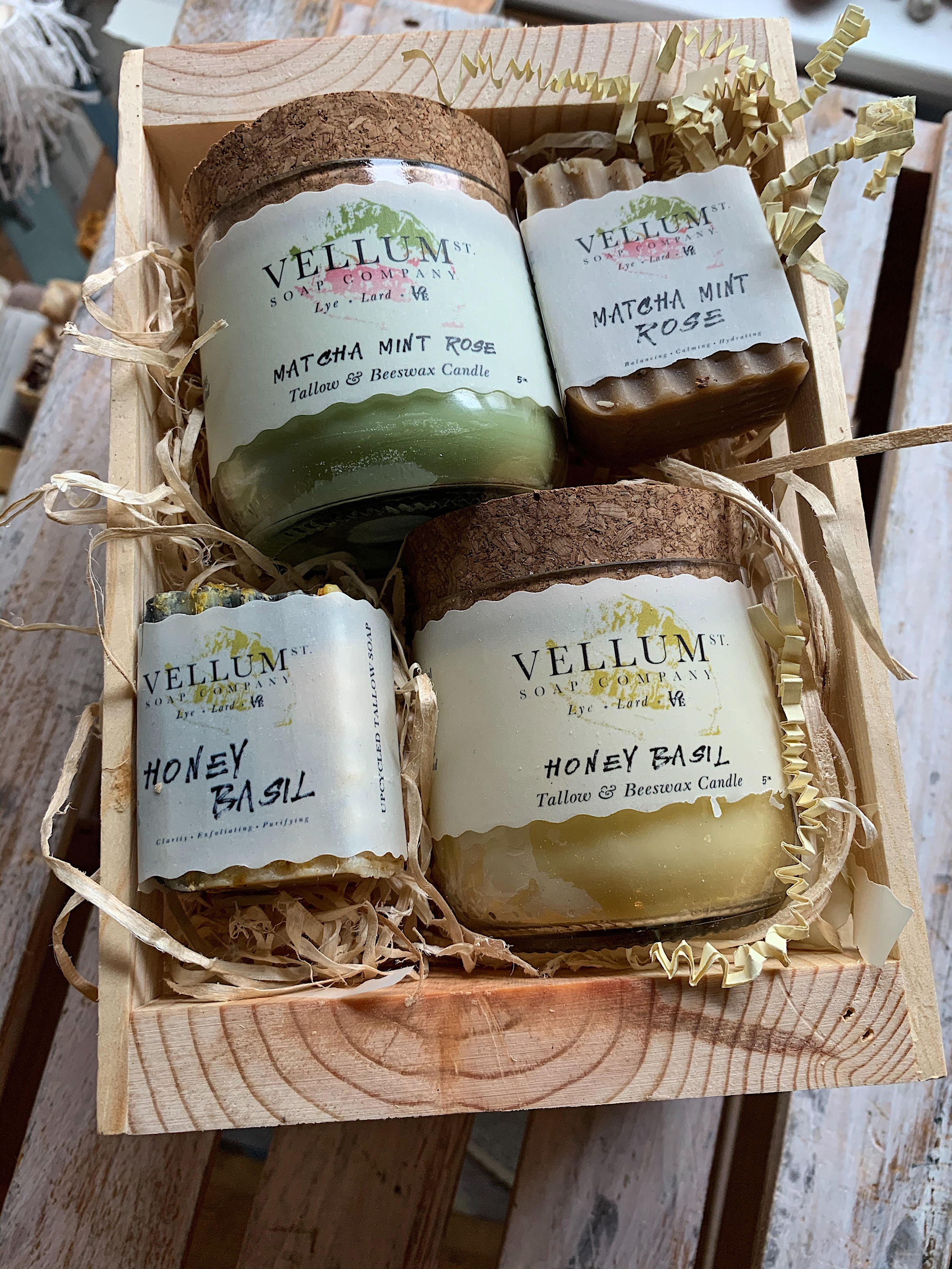
Torre began developing products after contacting local farmers and business owners.
“I started reaching out to some of my chef and farmer friends,” Torre says. “I asked, ‘What do you have that is a waste product from food?’ I would research if those items had value in skin care and build my recipe around that.”
“What I hope to be doing is helping people look at their trash differently.”
— Melissa Torre, founder of Vellum St. Soap Company
These conversations led to her use of unusual foods in personal care products: potato peels, from East Pastyunk’s pie shop Stargazy; carrot skins, from Kensington deli Liberty Kitchen; and lemons, from Port Richmond-based Flatiron Spirits. Torre gives credit to the local businesses and farms she works with by listing all of her ingredient partners on the Vellum St. website, along with a description of the items they provide.
Before she partnered with these businesses, the leftover foods would not have had a second life.
The central ingredient in all of Torre’s products is a food-waste product commonly used in early soapmaking: tallow. Tallow is created by pulverizing and heating raw beef fat for several hours. While the fat is heated, the water evaporates and the proteins solidify. The solids are filtered out, leaving pure fat. Once it has been cooled, tallow can be cut into bars and kept at room temperature. It is nonirritating, gentle to the skin and contains many of the same fatty acids as human skin.
“Soap was originally created from animal fat and lye ash. It wasn’t until the industrial revolution that plant oils were used in soap,” Torre says.
Torre sources her tallow from farms within 100 miles of Philadelphia. Butcher shops Carnicopia Meats and Primal Supply Meats process the animal fat into tallow for use in her products.
The use of tallow at Vellum St. sets Torre’s business apart from other skin care companies, many of which use vegan products. Through honest conversations, Torre has reached out to customers who were initially skeptical about tallow-based skin care and favored vegan products. Torre has helped explain the low-carbon footprint of her product, as well as the importance of using animal fat that would have previously been discarded. Several customers, who are vegan for environmental reasons, have become loyal to Vellum St. because of Torre’s focus on reducing food waste.
“We’re helping local farms use as much of the animal as they can. There’s way less of a carbon footprint from one cow within a hundred miles than there would be for that same amount of coconut oil shipped from overseas,” Torre says.
According to Heather Marold Thomason, butcher and founder of Primal Supply Meats, if she had not partnered with Vellum St., much of the extra beef fat produced would not have been purchased.
Primal Supply purchases about five to six whole beef from local farms each week, which are delivered by a local slaughterhouse as primal cuts. Primal Supply butchers process the beef into steaks, roasts, and other cuts. The raw fat that is produced, and cannot be sold on a cut, is turned into tallow. Though some of the tallow is sold to home cooks and restaurants for its use as a cooking fat, there is not enough interest from these customers.
“Sometimes it can be challenging for us to assure that the bones and fat aren’t wasted. Even if we further process them into broth or tallow, the market demand needs to be there,” Thomason says. “Now we can render the tallow for Melissa so that she can make soap out of it.”
Torre’s partnership with Primal Supply has created an essential market for their tallow.
“Around the holiday season, when Melissa’s business is really busy, she’s buying around 50 pounds of rendered tallow at a time. We’ll save all of the fat from the five or six beef we cut each week and our chef will render that down into tallow,” Thomason says. “We’re always hustling to get as close to zero waste as we possibly can.”
Since 2018, Torre has found another way to dramatically reduce the carbon footprint of Vellum St. products by partnering with Remark Glass. The glass company upcycles bottles and jars by heating them in a kiln and shaping them for new uses. Also a small business, Remark cleans, cuts and polishes all of Vellum St.’s glass packaging for candles, bath salts and body balms.
All of the glass is made from discarded bottles. Torre also gives a $2 credit toward a future Vellum St. purchase for any returned packaging.
“Consistency of supply can be varying. It might depend on people’s drinking habits,” Danielle Ruttenberg, cofounder of Remark Glass, says. “We love the glass quality [of Topo Chicos] and Melissa happens to drink them, so she brings them in as a supply. There [is] a nice circular message to the fact that she [enjoys] them.”
The partnership between Remark Glass and Vellum St. has also served as a way for the glass company to experiment with different sizes of containers and resealable lids, which can be used for future products beyond skin care.
“Down the line, I envision giving people recycled container options for grains or nonperishables. It works well to prototype all of that through cosmetics and skin care,” Ruttenberg says.
These ongoing partnerships have helped to sustain Vellum St.’s goal to take waste and turn it into new products.
“There’s a real problem with greenwashing in the cosmetic industry,” Torre says. “What I hope to be doing is helping people look at their trash differently. A lot of the things we are used to throwing away do have value.”



